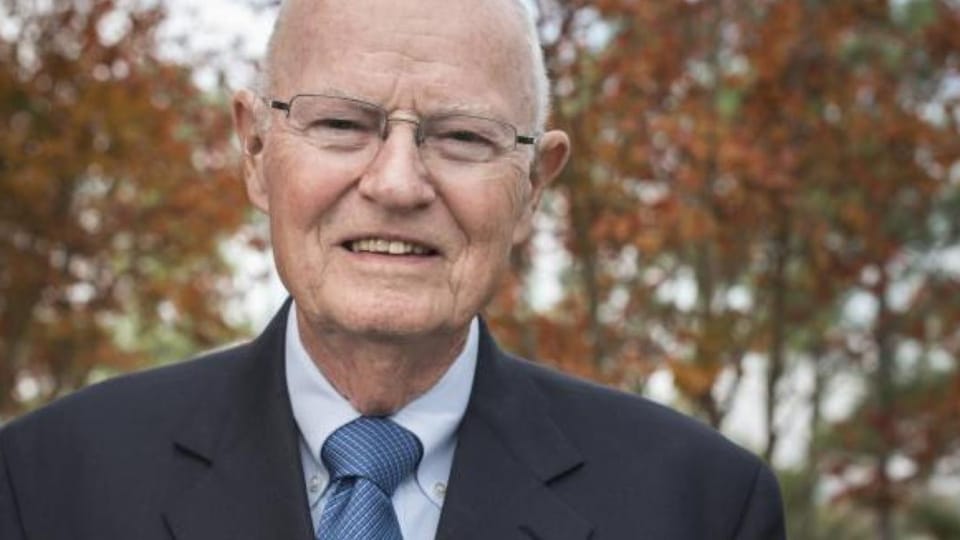We Need the Example of Robertson McQuilkin

We’re hungry for good examples. We need to follow the instruction of Hebrews 13:7 and find leaders who’ve finished well, and imitate them.
One such leader is Robertson McQuilkin, former president of Columbia International University.
McQuilkin was born in 1927, in Columbia, South Carolina. His parents were pioneers of Columbia International University, then known as Columbia Bible School. His father served as the first president.
McQuilkin met his wife Muriel Wengatz while studying at Columbia. They served together around the world, including for 12 years in Japan as missionaries. They raised 6 children.
They eventually returned to Columbia International University. Muriel taught, and Robertson became the president in 1968. The school thrived under his leadership. Columbia’s enrollment doubled, two radio stations were founded, the school received accreditation, and its reputation grew in the evangelical world.
During the 1980s, though, Muriel began to change. She was eventually diagnosed with Alzheimer’s. In 1990, at the peak of his career, Robertson resigned to become her full-time caregiver. He did so because she was much happier when he was with her.
When the time came, the decision was firm. It took no great calculation. It was a matter of integrity. Had I not promised, 42 years before, "in sickness and in health …. till death do us part"?
This was no grim duty to which I stoically resigned, however. It was only fair. She had, after all, cared for me for almost four decades with marvelous devotion; now it was my turn. And such a partner she was! If I took care of her for 40 years, I would never be out of her debt.
You can listen to part of his resignation speech below.
McQuilkin was startled by the reaction to his resignation. Later, an oncologist explained to him, “Almost all women stand by their men; very few men stand by their women.”
McQuilkin experienced “my dearest slipping from me, my eldest son snatched away in a tragic accident, my life's work abandoned at its peak.” He felt the weight of all of this, but remained faithful.
Muriel stopped recognizing him in 1993. She died in 2003. After she died, he said, “I don't see how I could have any more grief.“ But he also said, “I don't feel like I've given anything up. Our life is not the way we plot it or plan it. And so I guess all along I've just accepted whatever assignment the Lord gave me.”
McQuilkin once wrote a poem expressing his desire to finish well.
It’s sundown, Lord.
The shadows of my life stretch back
into the dimness of the years long spent.
I fear not death, for that grim foe betrays himself at last,
thrusting me forever into life:
Life with You, unsoiled and free.
But I do fear.
I fear the Dark Spectre may come too soon
- or do I mean, too late?
That I should end before I finish or
finish, but not well.
That I should stain Your honor, shame Your name,
grieve Your loving heart.
Few, they tell me, finish well…
Lord, let me get home before dark.
He feared “the darkness of a spirit grown mean and small, fruit shriveled on the vine, bitter to the taste of my companions, burden to be borne by those brave few who love me still.” Instead, he wanted fruit “lush and sweet, a joy to all who taste; Spirit-sign of God at work, stronger, fuller, brighter at the end.” He wanted to finish well.
McQuilkin passed away on June 2, 2016, at the age of 88. His prayer — “Lord, let me get home before dark” — was answered. He was primarily remembered not for his professional accomplishments, but for his love for his wife.
In an age of scandal and disappointment, we need the example of people like Robertson McQuilkin. It’s good to remember people like him, consider the outcome of their lives, and imitate their faith (Hebrews 13:7). May God raise up more like him.





